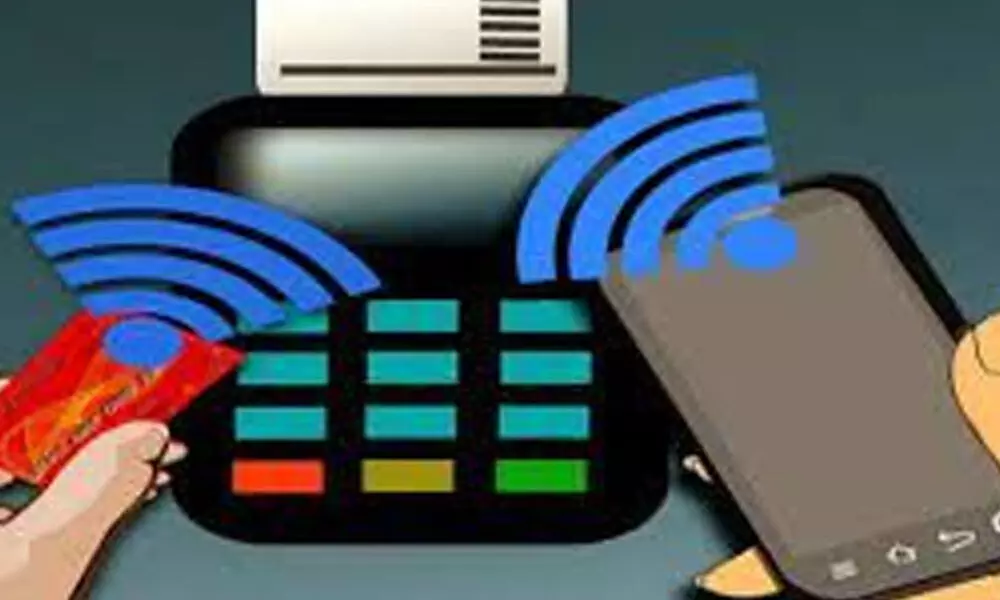Wider IMPS limit to push digital payments
IMPS started with Rs5 lakh limit, but the limit was reduced to Rs2 lakh because of delayed settlement on next day as the beneficiary bank would suffer float loss.
image for illustrative purpose

Mumbai: IMPS started with Rs5 lakh limit, but the limit was reduced to Rs2 lakh because of delayed settlement on next day as the beneficiary bank would suffer float loss. IMPS is one of the most used banking facilities to make payments or transfer money in real-time. This step is a big booster for accelerating digital payments in the country. It was the need of the hour as it will further provide an impetus in innovation around IMPS payments. Banks, users, fintechs, large and small companies, among other tech companies, are largely going to benefit from the move. Additionally, the measure is going to increase the operational efficiency of small businesses.
"In coming times, we will see many moving from paper-based transactions and pushing the adoption of digital transactions," says Mandar Agashe, founder, MD and vice-chairman, Sarvatra Technologies. Similarly, it will also help bring flexibility and cost efficiency by eliminating errors and time-consuming manual processes in large companies. According to Agashe, "We see the digital infrastructure of the country further grow and expand to broader areas of businesses. With this step we have moved a step further in financial inclusion."
Now, there are multiple IMPS settlements in a day, RBI's move will help people using NEFT for transactions over Rs2 lakh, move to IMPS because NEFT transactions still takes half-an-hour. While largely P2P transactions were taking place on IMPS the increase in limit may result in lot of B2B payments gaining speed too.
"We can see RBI unifying and optimising the payment infrastructure limits appropriately with the increase in the limit of various payment platforms and hope the Domestic Remittance limit for poor will also be revised from the year 2011 limit of 25,000 to 50,000 now to catch up with inflation," said Anand Kumar Bajaj, MD and CEO, PayNearby.
On Geo-tagging of Payment System Touch Points, Agashe said that it will help fine-tune better digital infrastructure roll-out. Areas deprived of digital payments infrastructure can now be targeted efficiently using geo-tagging by banks and fintech companies. It is going to increase the digital footprint of the country. While companies offering Payment infrastructures like PoS terminals and QR codes will benefit from the measure, it will also lead to a rise in the adoption of digital payments in rural regions.
The regulatory sandbox testing about on tap application is a great move to bring in the modernisation of digital payments infrastructure development. It will help the new age innovative companies flourish their inventions under the new regulatory sandbox cohort. India has one of the fastest evolving fintech ecosystems, and such measures by the policymakers lead to enhancing it further, Agashe added.
On Digital Payment Solutions in Offline Mode, experts are of the view that the RBI's push for offline digital payments is a move towards making good of what is available for a larger base of citizens who can pay digitally with whatever is available to them. This is best possible with optimisation of current infrastructure and unifying how these payments are consumed by customers at different stages of digitisation. Offline digital payment options have gone through a pilot process and it is encouraging to see the regulator consider a country-wide rollout.
"As the heart of India depends on cash payments, this could help in promoting safer and cleaner transactions with digital trackability," said Bajaj. Offline payments would include things like NFC-enabled cards on specialised acceptance infrastructure, and IVR-based payments systems.
IVR-based technology, he went on, can abinitio be made scalable and free of fraud if a central body deploys the specialised infrastructure rather than a few big boys. This would help even boot-strapped start-ups to innovate using this route.
Bajaj has recommended that a central respected platform like NPCI sets up a national calling infrastructure, which can be used by all players. This will solve another potential issue of fraudsters promoting their own Toll calling number and capture customer sensitive data.

